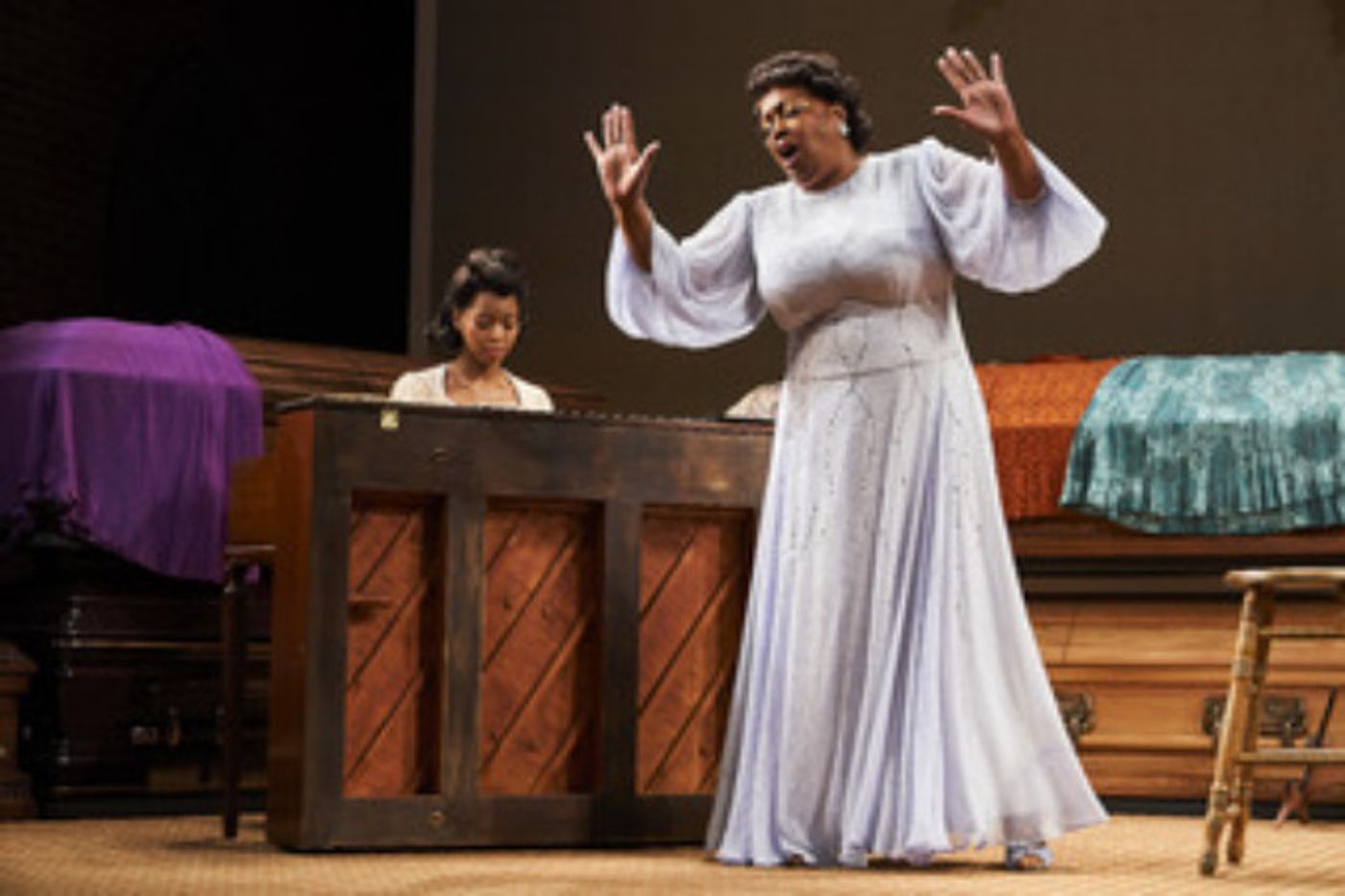Review: CPH's MARIE AND ROSETTA Points the Spotlight on Future-Inductee Into the Rock and Roll Hall of Fame

When Sister Rosetta Tharpe's name appeared on the Rock and Roll Hall of Fame Ballot, there were many who thought, Sister who? Little did those not familiar with the history of the genre, know that "she was wailing on the guitar before Chuck Berry, shouting call and response before Little Richard, and swaying rhythmically to the music long before Elvis shook his hips." In fact, Elvis may have learned his slim hip swiveling from the Sister Rosetta's pelvis thrusts.
For the uninformed, the swinging gospel music and fierce guitar playing Sister Rosetta was a 1930s and 40s veritable legend who sang gospel music in the morning and performed swing music for the white audiences at the famous Cotton Club in New York's Harlem. She justly deserved her selection to this year's Rock and Roll Museum class as one of rock 'n' roll's earliest icons.
Cleveland Heights' award winning playwright, George Brant's "Marie and Rosetta," now on stage at Cleveland Play House, takes us to 1946 Mississippi where Sister Rosetta Tharpe (Miche Braden) has "plucked prim and proper Marie Knight (Chaz Hodges) from a small-time quartet to join her comeback tour."
In their first rehearsal together, which makes up the sum of the 90-minute without intermission show, we find that Marie isn't as innocent as she looks-she is married, has two children and is older than her teenage image. We also learn of Rosetta's life stories and her failed marriages to men she refers to as "squirrels."
Why are they rehearsing in a Black-run funeral home surrounded by a number of caskets draped in Rosetta's costumes, and the place they will sleep after the concert? This is the segregated South, where Black performers, no matter their status in the music world, are not welcome in public accommodations. As Sister states, "We step off stage and got to disappear." Yes, Whites will flock to their shows, but won't treat them as equals.
Brant lets us in the on the secrets and life of a woman of firm faith, but who finds it acceptable to shake her abundant hips, spout earthy humor, and make fun of her chief rival, Mahalia Jackson.
She gradually brings the "holier than thou," rule-bound Marie around to start whaling on the piano and let loose of her rigid body.
Rosetta entertains with "This Train," a traditional African American gospel song, "I Looked Down the Line (and I Wondered)," another gospel song." Marie sings the spiritual, "Were You There (When They Crucified My Lord)? And Mahalia Jackson's anthem, "Peace in the Valley." Their numerous duets include, "Rock Me," "Lord, Search My Heart," "Four or Five Times," and "Strange Things Happening Every Day."
Though interesting in content, and filled with humor, the script often bogs down in repeated themes, and lots of talk and limited action. Part of this is the writing, part Neil Pepe's static direction.
Rosetta doesn't work the audience and display her dynamic presence. Since she doesn't actually play the guitar (the sounds are masterfully produced backstage by KJ Denhert) Braden is angled on stage faking the guitar riffs, confining what would be her sexual and dynamic movements.
Chaz Hodges (Marie Knight) doesn't play her instrument either (her alter-ego is Katreese Barnes, who is off-stage playing a mean piano), adding to the pseudo musical effect of really talented people portraying, rather than being the performers. One must wonder why, with the vast number of talented performers available in this country, the casting directors couldn't find two actresses who can fulfil the total requirements of the roles.
In addition, though Miche Braden is a wonderful actress and singer, (Miss) Knight had some vocal issues on opening night, though she was believable in her acting.
Brandt pulls an abrupt plot switch near the end of the play, which brings the tale to a conclusion, but the transition into that ending was so rapid, it may have slipped past the awareness of the viewer and somewhat leaves the ending unnerving. (No more here...it would be unfair to future viewers to reveal the conclusion.)
CAPSULE JUDGMENT: George Brant's "Marie and Rosetta" exposes the personality and vast talent of Sister Rosetta Tharpe, which is a service to the woman and a public which may have been unaware of her effect on the music industry. Though the play is interesting, and the music is dynamic, it is also a little static in language and staging.
"Marie and Rosetta" runs through February 11, 2018 at the Allen Theatre in PlayhouseSquare. For tickets call 216-241-6000 or go to http://www.clevelandplayhouse.com.
Next up at CPH: (February 17-March 11, 20018) Ayad Akhtar's "The Invisible Hand," a suspenseful narrative in which an American banker specializing in the Pakistani market is kidnapped by Islamic revolutionaries.
Reader Reviews
Videos

